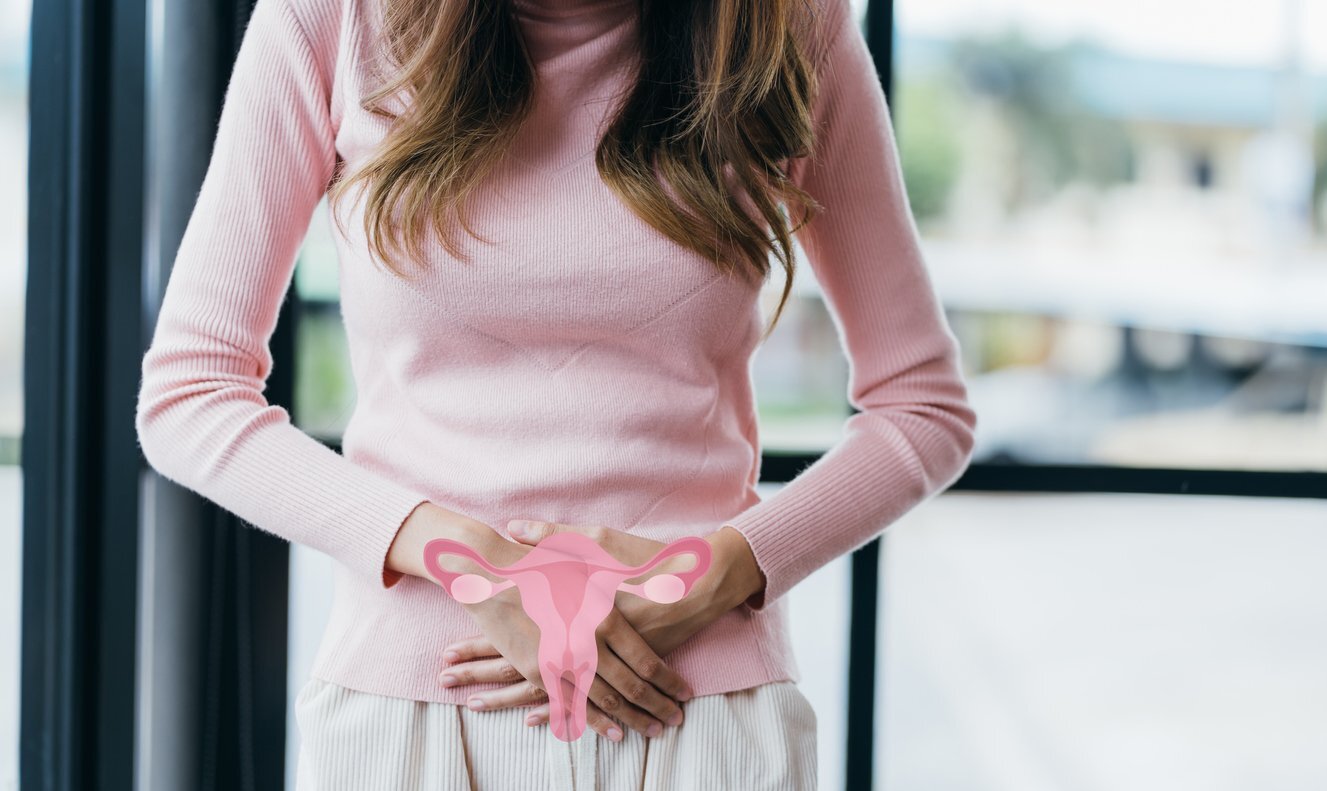Our clinic donates gynecological care services to underprivileged families, ensuring that all women have access to essential health services regardless of their economic situation.
Polycystic ovary syndrome (PCOS) is a hormonal disorder that often affects women of reproductive age. It is characterized by an imbalance in reproductive hormones, which leads to various symptoms and health-related problems; therefore, an understanding of the condition, its causes, symptoms, diagnosis, and treatment options is essential. This comprehensive guide will delve into the intricate aspects of PCOS, thus providing valuable insights for women grappling with this problem.
Understanding Polycystic Ovary Syndrome (PCOS) and Its Impact
Polycystic ovary syndrome (PCOS) is a hormonal disorder that often affects women of reproductive age. It is characterized by an imbalance in reproductive hormones, which leads to various symptoms and health-related problems; therefore, an understanding of the condition, its causes, symptoms, diagnosis, and treatment options is essential. This comprehensive guide will delve into the intricate aspects of PCOS, thus providing valuable insights for women grappling with this problem.
What is PCOS?
PCOS occurs when the ovaries produce abnormal quantities of androgens, which are male hormones that are usually present in small amounts in women. The term “polycystic” refers to the presence of multiple cysts on ovaries, though not all women with PCOS may have these cysts. What exactly causes PCOS has not yet been fully understood, although there are suggestions that it involves a combination of genetic and environmental factors.
Causes and Risk Factors
Though the exact aetiology of PCOS remains unknown, several factors are believed to contribute to this development, including:
- Insulin Resistance: It means most women suffering from PCOS have their body’s inability to use insulin effectively, hence leading to higher insulin levels, causing the ovaries to produce more androgens, disrupting the normal development of eggs and leading to irregular menstrual cycles.
- Hormonal Imbalance: Overproduction of androgens inhibits the ovulation process and can result in infertility as well as other symptoms associated with PCOS.
- Genetics: Familial association has also been identified in patients diagnosed with PCOS, indicating that there could be some genetic basis involved; hence, if a woman has a mother or sister having polycystic ovarian syndrome, then she is at an increased risk, too.
- Low-Grade Inflammation: Women with PCOS often have low-grade inflammation, which can stimulate the ovaries to produce androgens, contributing to the symptoms of PCOS.
Common Symptoms of PCOS
PCOS is highly variable, with signs and symptoms differing from one woman to another. Some of the most common symptoms of PCOS include:
- Irregular Menstrual Cycles: Women with PCOS may experience infrequent, irregular, or prolonged menstrual periods. Some may have fewer than eight periods a year, while others may have more than 35 days apart.
- Excess Androgen Levels: Increased levels of male hormones lead to physical manifestations like hirsutism, characterized by excessive hair growth on body parts like the face, chest, stomach, or back, acne breakouts or zits, and male pattern baldness.
- Polycystic Ovaries: At times, there may be an increase in ovarian size accompanied by numerous tiny cysts. However, not all women with PCOS possess these polycystic ovaries, and not all females experiencing polycystic ovaries develop PCOS.
- Weight Gain: Many ladies diagnosed with polycystic ovarian syndrome tend to gain weight or find it hard to shed pounds. Obesity worsens the symptoms of PCOS as well as increases the long-term health risks associated with this condition.
- Fertility Issues: Many women undergo a loss of ability to conceive because their hormonal balance causes them not to release mature ova (ovulate).
- Skin Changes: Women suffering from PCO-related disorders may sometimes develop acanthosis nigricans, where the skin darkens around areas such as under the breast, neck, and groin. Skin tags might also appear in these areas.
- Mood Disorders: Hormonal imbalances and managing its symptoms can lead to anxiety and depression in most women with PCOS.
Dealing with PCOS
Due to the variability in symptoms and the lack of a single definitive test, diagnosing PCOS can be challenging. Diagnosis is typically made by way of:
- Medical History: Doctors usually inquire about the menstrual history and weight changes to assess the patient’s overall health.
- Physical Examination: A physical examination should be performed to check for signs of excess hair growth, insulin resistance, and acne. The doctor may also conduct a pelvic exam to check for malformations of the reproductive organs.
- Blood Tests: These tests identify levels of hormones such as estrogen and androgens, as well as other reproductive hormones. They are also used alongside glucose tolerance tests that help evaluate insulin resistance cases.
- Ultrasound: This helps determine if there are any cysts in the ovaries or checks how thick the uterine lining is supposed to be. However, simply having cysts does not mean that one has PCOS.
The Impact of PCOS on Health
PCOS affects various aspects of a woman’s health beyond reproduction. Therefore, it is essential to understand these potential problems for effective control and prevention purposes:
- Infertility: Ovulation is absent in women with PCOS, making it one of the leading causes of infertility. However, many women suffering from it can still get pregnant after sufficient medical attention.
- Metabolic Syndrome: Women with PCOS have an increased chance of getting metabolic syndrome, which mainly comprises high blood pressure, high blood sugar levels, obesity around the waistline area, and abnormal cholesterol levels, hence leading to heart disease development.
- Type 2 Diabetes: The majority of people who suffer from this disease usually have insulin resistance, which makes them more likely to go into full-blown type 2 diabetes, especially those with overweight issues due to excessive body fat accumulation.
- Endometrial Cancer: Irregular periods can thicken inside walls, increasing chances of developing endometrial cancer. Regular menstrual cycles, whether natural or medical, can decrease this risk.
- Mental Health Issues: The emotional and psychological impact of PCOS can be profound. The physical symptoms and challenges that come with it exacerbate depression, anxiety, and eating disorders, among others, in women with PCOS.
Treatment and Management of PCOS
Although there is no definite cure for PCOS, the condition may be managed by a combination of changes in lifestyle, drugs, and at times, surgery. This approach to treatment is commonly determined by an individual patient’s goals and symptoms, such as controlling irregular menstrual periods, reducing levels of male hormones, or enhancing fertility.
Changes in Lifestyle
- Diet: A well-balanced diet full of whole foods, low in refined carbohydrates and high in fiber, can help manage insulin resistance while promoting weight loss.
- Exercise: Regular physical activity assists in improving insulin sensitivity and reducing weight, as well as relieving symptoms like mood swings and fatigue.
Medications
- Oral Contraceptives: Taking birth control pills can regulate menstrual cycles and reduce the level of androgens, thus curbing acne and unwanted hair growth.
- Anti-androgen Medications: Drugs such as spironolactone may block the effects of male hormones, thereby reducing overgrown hair on body surfaces and acne development on the skin.
- Metformin: This drug used for curing type 2 diabetes improves insulin resistance while regulating menstruation in women with PCOS.
Fertility Treatments
- Clomiphene: An oral medication that stimulates ovulation among women with PCOS who intend to get pregnant via sexual intercourse.
- Letrozole: Similar to clomiphene, this is another prescription pill that causes ovulation and is mainly used when the former fails.
- In Vitro Fertilization (IVF): IVF may be suggested if medications do not work.
Surgical Options
- Ovarian Drilling: This minimally invasive surgical technique involves making small holes in the ovaries to reduce androgen production and encourage ovulation. It is usually considered when other treatments have failed.
Living with PCOS
It can be demanding living with PCOS, but with the correct support and management strategies, women can live healthy lives that are fulfilling. Listed below are some tips on how PCOS should be managed:
- Education and Awareness: The initial step toward managing the condition is understanding PCOS and its impact. Women should be knowledgeable about its symptoms, treatment options, and possible complications.
- Regular Check-Ups: Regular visits to a healthcare provider will help monitor the condition better, manage symptoms, and prevent complications.
- Support Networks: Connecting with others suffering from this condition can provide emotional support and practical advice. Support groups, online communities, or counseling could be helpful for this purpose.
- Self-Care: Stress management, good lifestyle maintenance, and self-care prioritization are critical issues in managing PCOS while improving general well-being.
Conclusion
PCOS affects various aspects of a woman’s well-being, making it a multifaceted illness. Awareness of its nature becomes essential to lead a healthy, fulfilling life since the disease cannot be cured entirely. Therefore, if you suspect having PCOS, seek medical advice immediately and work closely with your healthcare provider towards personalizing an effective treatment plan. Early detection through a diagnosis of this condition can make a difference toward managing symptoms, thereby reducing future chances of long-term complications concerning it happening again or getting worse over time rather than subsiding over time.
Keywords:
- symptoms of PCOS
- androgens
- male hormones
- polycystic ovaries
- insulin resistance
- impact of PCOS
- menstrual cycle

